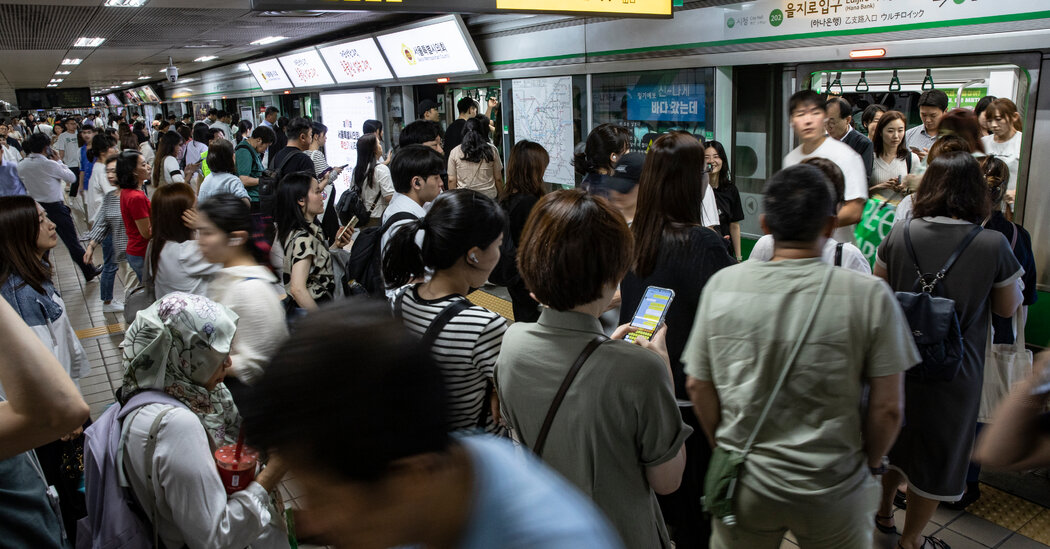The reporter Jin Yu Young wrote about companies that have pushed their managers to work longer hours, a move that has not gone over well with some young people in the country.
Times Insider explains who we are and what we do and delivers behind-the-scenes insights into how our journalism comes together.
I spent much of my childhood in the United States and Canada but have lived in South Korea for all of my adult life. I have noticed one stark contrast between the places I grew up in and South Korea: people’s attitude toward work. In North America, it seems to me that people look for jobs that they are interested in or passionate about. In South Korea, people often prioritize jobs that offer prestige and better reputations.
As a reporter covering South Korea from the Seoul bureau of The New York Times, I have written about the country’s cutthroat education system. It may come as no surprise that South Korea’s work culture is also rigorous. There is a lot of data to prove this, and more than enough anecdotes about employees working extremely long hours. But to have the nation’s largest companies go on the record about implementing longer working hours for managers — a response to a downturn in business — is another thing altogether.
The news about longer hours appeared on my radar in the spring. Through online forums, and later from the local news, I learned that some influential South Korean companies were advocating longer hours, and in some cases, even encouraging managers to come to the office six days a week.
Rich Barbieri, the deputy business editor in Seoul, approached me about taking on the story. The news could serve as a peg and hook into a deep-dive enterprise on South Korea’s current and former labor laws. This looking-glass type of article is my favorite to report and write. Telling a story with real voices and experiences is how, I think, we preserve our humanity in our journalistic quest to record the present for posterity.
The first task was to find companies that were willing to go on the record about asking managers to work longer hours. As many business journalists know, it’s often difficult to breach the barrier of tight-lipped spokespeople. I spoke to a handful of them to confirm the news. It took multiple tries: I had almost a dozen phone calls with one company before getting anything on the record. A company that did agree to speak on the record mentioned that one of its divisions had done poorly in recent months; executives and leaders within the company were expected to come to its rescue. (Translation: They would work longer hours.)
Another key element for my article would be to speak with someone who had worked in South Korea before and after 2004, when workweeks were capped at five days. I wanted to find someone who could speak about the nation’s work culture at a time when many people were accustomed to working more than five days a week.
